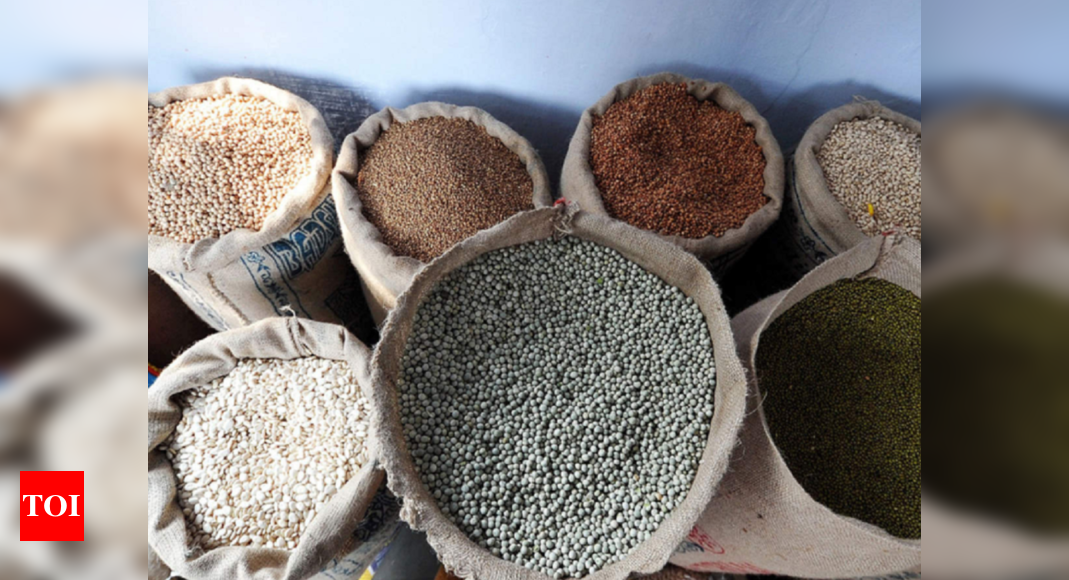Govt Provides 5kg Free Food Grains: A Lifeline for Millions
The government's recent announcement of providing 5kg of free food grains per person has sent ripples of relief across the nation. This significant initiative aims to alleviate the burden of rising food prices and ensure food security for millions of vulnerable citizens. This article delves into the details of this crucial program, its impact, and its implications for the future.
Who Benefits from the 5kg Free Food Grains Scheme?
The 5kg free food grains scheme is primarily targeted towards low-income families and individuals who struggle to afford basic necessities. Specific eligibility criteria may vary depending on the region and implementation details, but generally, it includes:
- Antyodaya Anna Yojana (AAY) beneficiaries: These are the poorest of the poor, receiving the highest level of food subsidy.
- Priority Households (PHH) under National Food Security Act (NFSA): This covers a significant portion of the population deemed vulnerable to food insecurity.
- Specific vulnerable groups: Depending on the state and local government policies, this may include pregnant women, lactating mothers, children, and the elderly.
It's crucial to check with your local government authorities or ration shops for the exact eligibility criteria in your area. You can often find this information on the official websites of the relevant departments.
How to Access the Free Food Grains
The distribution of the 5kg free food grains usually takes place through the Public Distribution System (PDS). This involves:
- Visiting your designated ration shop: Your ration card will identify your allocated shop.
- Presenting your ration card: This is the primary document for verification and claiming your entitlement.
- Collecting your allocated grains: The type of grains may vary depending on availability and government policy.
The Impact of the 5kg Free Food Grains Initiative
This initiative holds significant implications for the nation's food security and economic stability. Some key impacts include:
- Reduced food insecurity: The free grains provide a crucial safety net, ensuring that vulnerable families have access to essential food.
- Improved nutritional outcomes: Access to adequate food contributes to better health and well-being, particularly for children and pregnant women.
- Stimulated economic activity: The increased purchasing power of the beneficiaries, even indirectly, can boost local economies.
- Political implications: This is a significant social welfare program that impacts voter sentiment and political discourse.
Challenges and Future Prospects
While this initiative is lauded for its positive impact, challenges remain. These include:
- Efficient distribution: Ensuring the timely and efficient distribution of food grains to all beneficiaries is a logistical challenge.
- Corruption and leakages: Preventing corruption and ensuring that the grains reach the intended recipients requires strong oversight mechanisms.
- Sustainability: The long-term financial sustainability of such a large-scale program requires careful planning and resource allocation.
The government's commitment to providing 5kg of free food grains signifies a crucial step towards ensuring food security and reducing poverty. The long-term success of this initiative depends on continuous monitoring, efficient implementation, and addressing the challenges that inevitably arise. Regularly checking your local government websites and news sources for updates is recommended.
Keywords: 5kg free food grains, free food, government scheme, food security, PDS, Public Distribution System, ration card, food subsidy, poverty alleviation, NFSA, National Food Security Act, AAY, Antyodaya Anna Yojana, India, social welfare
(Note: This article provides general information. Specific details about eligibility, distribution methods, and other aspects of the program may vary based on location and government policies. Always consult official sources for accurate and up-to-date information.)
